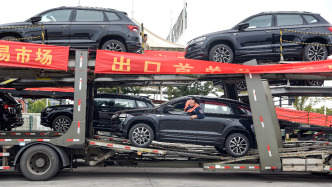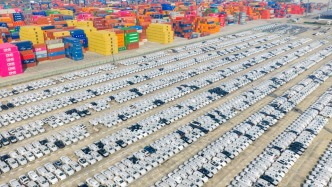
On November 27, a State Council policy briefing was held in Beijing, where Xie Yuansheng, Vice Minister of Industry and Information Technology, and relevant officials from the National Development and Reform Commission, the Ministry of Commerce, the Ministry of Culture and Tourism, and the State Administration for Market Regulation introduced relevant policies and measures to enhance the matching of supply and demand of consumer goods and further promote consumption.
Yang Xi, head of the Department of Market Operation and Consumption Promotion of the Ministry of Commerce, introduced the measures the Ministry of Commerce will take to promote commodity consumption and facilitate smooth supply and demand.
He first presented a set of data: Since the beginning of this year, commodity consumption has maintained a steady growth trend. From January to October, retail sales of goods reached 36.6 trillion yuan, a year-on-year increase of 4.4%, with the growth rate accelerating by 1.2 percentage points compared to the same period last year. In the first 10 months of this year, the trade-in program for old consumer goods boosted sales of over 2.4 trillion yuan, benefiting over 360 million people. From January to October, retail sales of new energy passenger vehicles reached 10.15 million units, a year-on-year increase of 21.9%.
Next, the Ministry of Commerce will promote the expansion and upgrading of commodity consumption from three aspects.
First, we will promote large-scale consumption. Automobiles, home appliances, and furniture are important components of commodity consumption. From January to October this year, the retail sales of home appliances, furniture, and communication equipment by enterprises above the designated size all increased by about 20% year-on-year, while passenger car retail sales increased by 7.9%, maintaining a relatively rapid growth rate overall. Next, we will advance the pilot reform of automobile circulation and consumption, expand the circulation of used cars, and develop the automotive aftermarket, including car modification, leasing, racing, and RV camping, to expand automobile consumption across the entire chain. We will also focus on green and intelligent trends to promote the consumption of home appliances and furniture.
Second, we will promote new forms of consumption. Currently, new business formats, models, and scenarios are constantly emerging in the consumption sector, injecting new momentum into economic development. We will actively promote the "first-launch economy," enrich the platforms for first launches, and encourage enterprises to release new products, open first stores, and hold debut shows and exhibitions. We will develop health consumption, cultivate new productivity in the health consumption sector, and improve the quality of health products and services. We will develop digital consumption and green consumption, cultivate "artificial intelligence + consumption," and create more new growth points in consumption.
Third, we will create an internationalized consumption environment. In recent years, driven by policies such as expanding visa-free travel and optimizing tax refunds for departing tourists, "China tourism" and "China shopping" have continued to boom. From January to September this year, sales of goods eligible for tax refunds for departing tourists increased by nearly 100% year-on-year. Next, we will deepen the construction of international consumption center cities, organize and carry out pilot projects for building an internationalized consumption environment, support relevant cities in further enriching the supply of high-quality goods and services, create a number of new consumption scenarios with broad impact and high visibility, improve the level of international services, and create a more convenient and comfortable consumption environment, allowing more friends from home and abroad to experience the unique charm of "shopping in China."
He also stated that the Ministry of Commerce will deepen the cultivation and development of international consumption center cities, supporting cities such as Shanghai, Beijing, Guangzhou, Tianjin, and Chongqing in creating globally attractive consumption environments. Currently, these five cities account for approximately one-third of the country's inbound foreign visitors, more than half of the country's consumer goods imports, and about 70% of the country's sales revenue eligible for tax refunds upon departure, fully demonstrating their exemplary and leading role.

